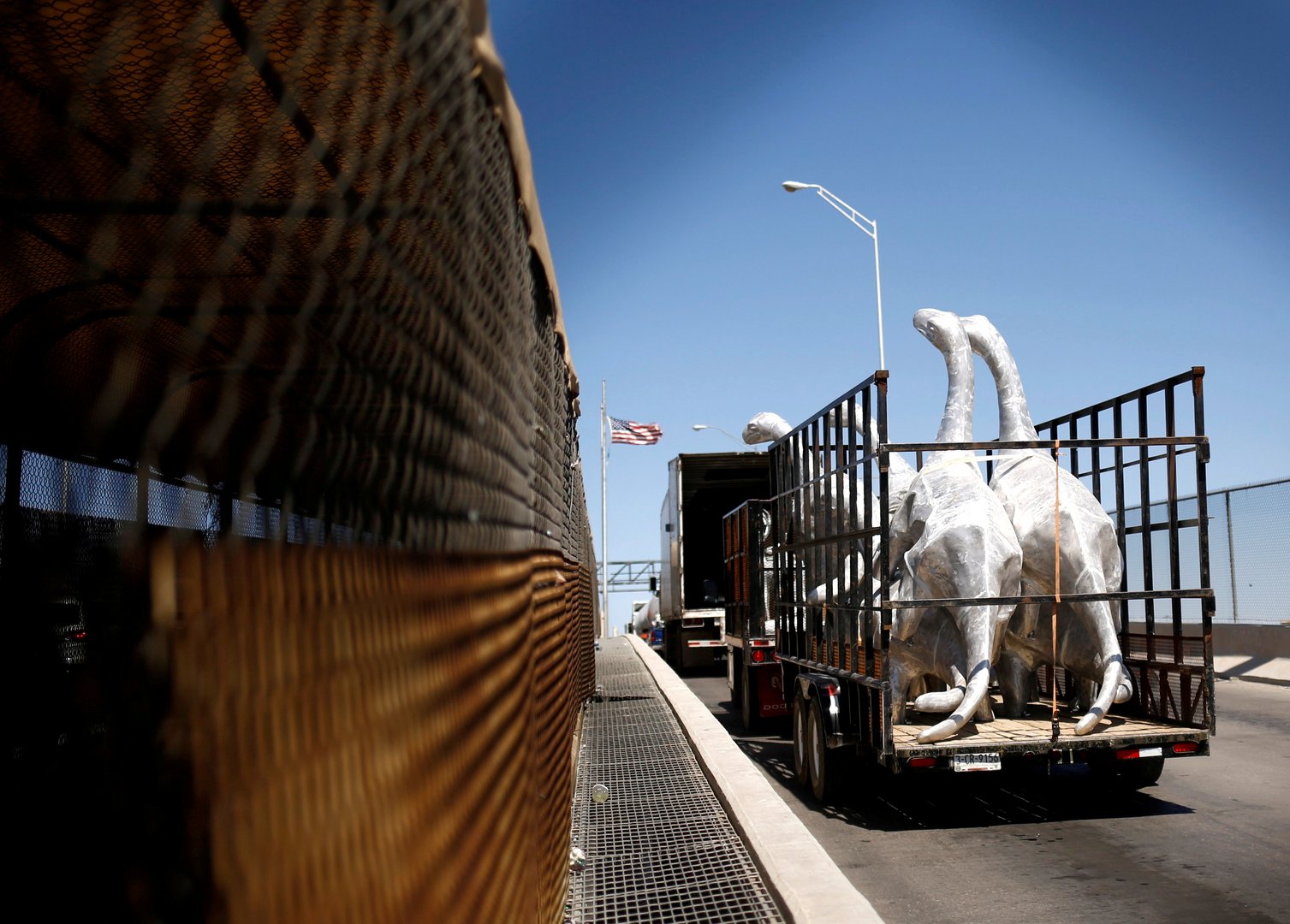The US Supreme Court on Tuesday let a Republican-backed Texas law take effect allowing state law enforcement authorities to arrest people suspected of crossing the US-Mexico border illegally, rejecting a request by President Joe Biden’s administration.
The court has a 6-3 conservative majority, and its three liberal justices dissented on Tuesday. The administration had asked the justices to freeze a judicial order allowing the Texas law to take effect while its challenge to the statute proceeds in the lower courts.
The law violates the US Constitution and federal law by interfering with the US government’s power to regulate immigration, the administration has argued.
The liberal justices said Tuesday’s decision turns immigration enforcement – typically the province of the federal government – on its head.
“Today, the court invites further chaos and crisis in immigration enforcement,” Justice Sonia Sotomayor wrote, in a dissent joined by fellow liberal Justice Ketanji Brown Jackson. Liberal Justice Elena Kagan wrote a separate dissent.
Texas Governor Greg Abbott last December signed the law, known as SB 4, authorizing state law enforcement to arrest people suspected of entering the United States illegally, giving local officers powers long delegated to the US government.
Abbott said the law was needed due to Biden’s failure to enforce federal laws criminalizing illegal entry or re-entry, telling a December 18 press conference that “Biden’s deliberate inaction has left Texas to fend for itself.”
The Democratic president’s handling of the record numbers of migrants caught illegally crossing the U.S.-Mexico border during his presidency has drawn sharp criticism from Republicans. Abbott and other Republicans have said Biden should have kept the restrictive policies of former President Donald Trump, their party’s candidate challenging Biden in the November 5 U.S. election.
STATE CRIMES
The Texas law made illegal entry or re-entry into Texas a state crime, with penalties ranging from 180 days in jail to 20 years in prison. Under it, Texas magistrate judges will be required to order migrants to return to Mexico, with up to 20-year sentences for those who refuse to comply.
Conservative Justice Amy Coney Barrett filed an opinion concurring in Tuesday’s decision, explaining that the justices were being asked to upend a lower appeals court’s “administrative stay” of a judicial decision blocking the law – a measure that is meant to be short-lived.
“So far as I know, this court has never reviewed the decision of a court of appeals to enter – or not enter – an administrative stay. I would not get into the business,” wrote Barrett, who was joined by conservative Justice Brett Kavanaugh.
Barrett said Biden’s administration could file another application to the Supreme Court if the New Orleans-based 5th US Circuit Court of Appeals does not issue a ruling “soon,” but without specifying a time frame.
Kagan wrote that the 5th Circuit’s use of an administrative stay rather than a different procedural mechanism “should not spell the difference between respecting and revoking long-settled immigration law.”
The Justice Department did not immediately respond to a request for comment.
Anand Balakrishnan, an attorney at the ACLU civil rights advocacy group that represented a separate group challenging the Texas law, expressed disappointment over the court’s ruling, saying it “threatens the integrity of our nation’s immigration laws and bedrock principles of due process.”
The Justice Department sued in January to block the measure, which was originally set to take effect on March 5. Biden administration lawyers argued that it violates federal law and constitutional provisions giving the US government the power to regulate commerce with foreign countries and among states, and runs afoul of a 2012 Supreme Court precedent.
Texas-based US District David Ezra on February 29 sided with the administration and agreed to preliminarily block Texas officials from enforcing the law, saying that it “threatens the fundamental notion that the United States must regulate immigration with one voice.”
But the 5th Circuit paused Ezra’s ruling in an order that would have let the Texas law take effect on March 10, prompting the administration to file an emergency request to the Supreme Court.
Justice Samuel Alito, who handles for the Supreme Court certain emergency matters involving cases from a group of states including Texas, on March 4 halted the 5th Circuit ruling – and thus the law – from taking effect, giving the Supreme Court more time to consider the matter.
Texas has pursued a range of measures to deter people who cross illegally under its Operation Lone Star, including deploying National Guard troops to the border, blocking migrants with concertina wire and installing a floating barrier over a stretch of the Rio Grande.







Click here to change your cookie preferences